NO DECISION ABOUT ME, WITHOUT ME
Involving individuals, carers and family members in decisions can help improve health and well-being, improve the quality and appropriateness of care and ensure people make informed use of available healthcare resources. The challenge now is to shift the focus of care and support from ‘what is the matter with you?’ to ‘what matters to you’.
Involving individuals requires supporting people to manage their lower limb condition every step of the way. It means supporting them to become a stakeholder in their own healthcare as much as they want or can. It should focus on what matters to them within the context of their individual situation, not simply addressing a list of conditions or symptoms to be treated.
Involving individuals in their lower limb care may range from sharing thoughts about one off decisions like what compression garment to choose, through to long term self care management of their lower limb condition. We should however be mindful that the amount of control an individual wishes or is able to take in relation to these may vary according to their background, experience, ability, current circumstances and preferences.
Although many patients can learn to almost totally self care, there can be a ‘shared care’ approach where a reduced level of clinical input is implemented for support and reassurance. For example, this approach is taken in the management of venous leg ulcers so to monitor wound progress and change care as appropriate.
SO WHAT IS SELF-CARE
This term is used interchangeably and covers:
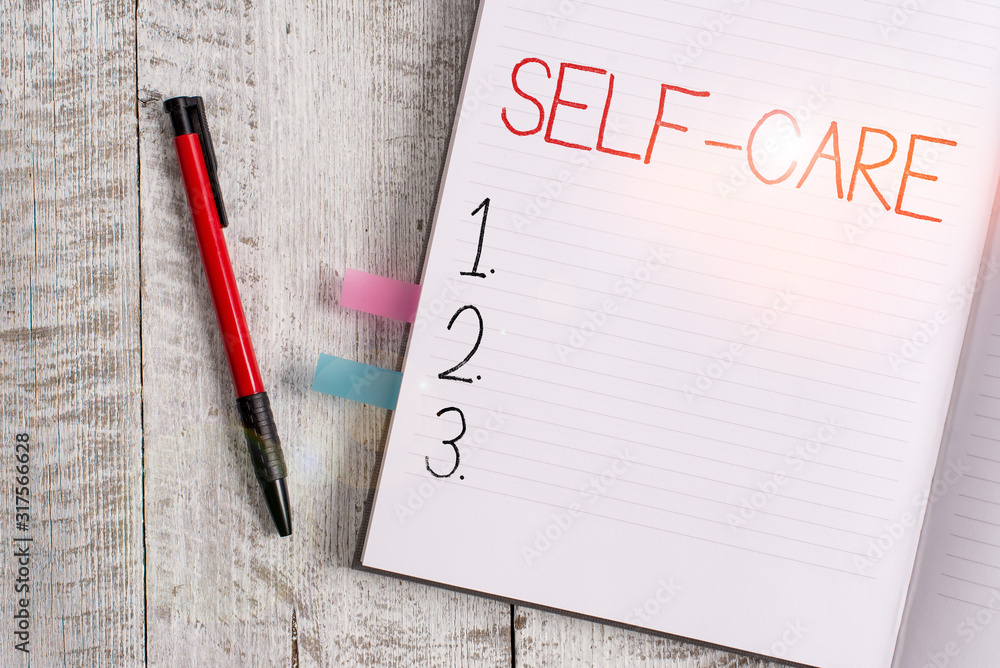
- Self management
- Self regulation
- Patient, Carer & Family involvement
- Patient support & education
- Patient counselling
- Patient & Healthcare partnerships
All should deliver beyond the practice of simply giving information and increasing patient knowledge.
However, embracing and supporting self and shared care isn’t without barriers. From deciding who is appropriate through to implementing appropriate self and shared care requires careful thought, structure, and tools to empower patients and carers to feel confident and capable. Support material such as the ‘MY LOWER LIMB CARE’ document provide patients and carers with a platform to learn, embrace and be competent and confident on their lower limb journey (for more information, click on the the patient education section above).
Supporting individuals to manage their lower limb condition is likely to improve their self confidence, independence and quality of life. It is also a way to reduce pressure on the NHS and reduce the risk of infection. The benefits of providing a well rounded and structured educational platform include:
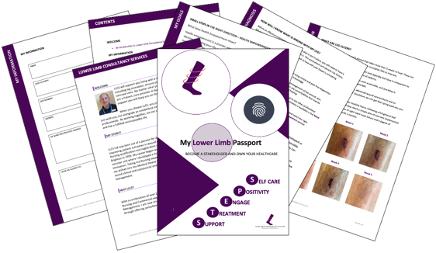
- Involving patient and carers in decision making
- Developing focused and realistic plans together
- Helping patients identify problems early and who to contact
- Provide structure and support
- Support long term health promotion
- supporting long term confidence and competence
CORE PRINCIPLES
In order to implement self and shared care safely and effectively requires a holistic mindset alongside a structured process to ensure the right care is supported for the right patient at the right time.
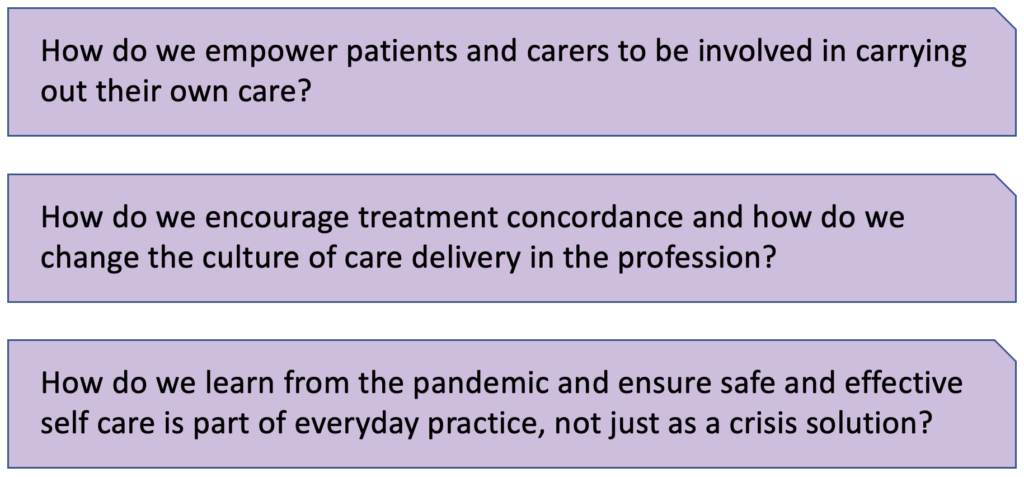
A joined up and collaborative approach is needed to change ritualistic and entrenched thoughts and involves the patient, carer, family member and healthcare professionals.

For venous leg ulcer patients, a self care programme can still be suitable and can encourage independence and ownership of their condition. This can be achieved through wearing compression hosiery, implementing a structured skin care regime, eating a healthy diet, leg elevation and simple ankle and leg exercises. However, not all patients are able or willing to self care and it is important to fully assess a patient on an individual basis.
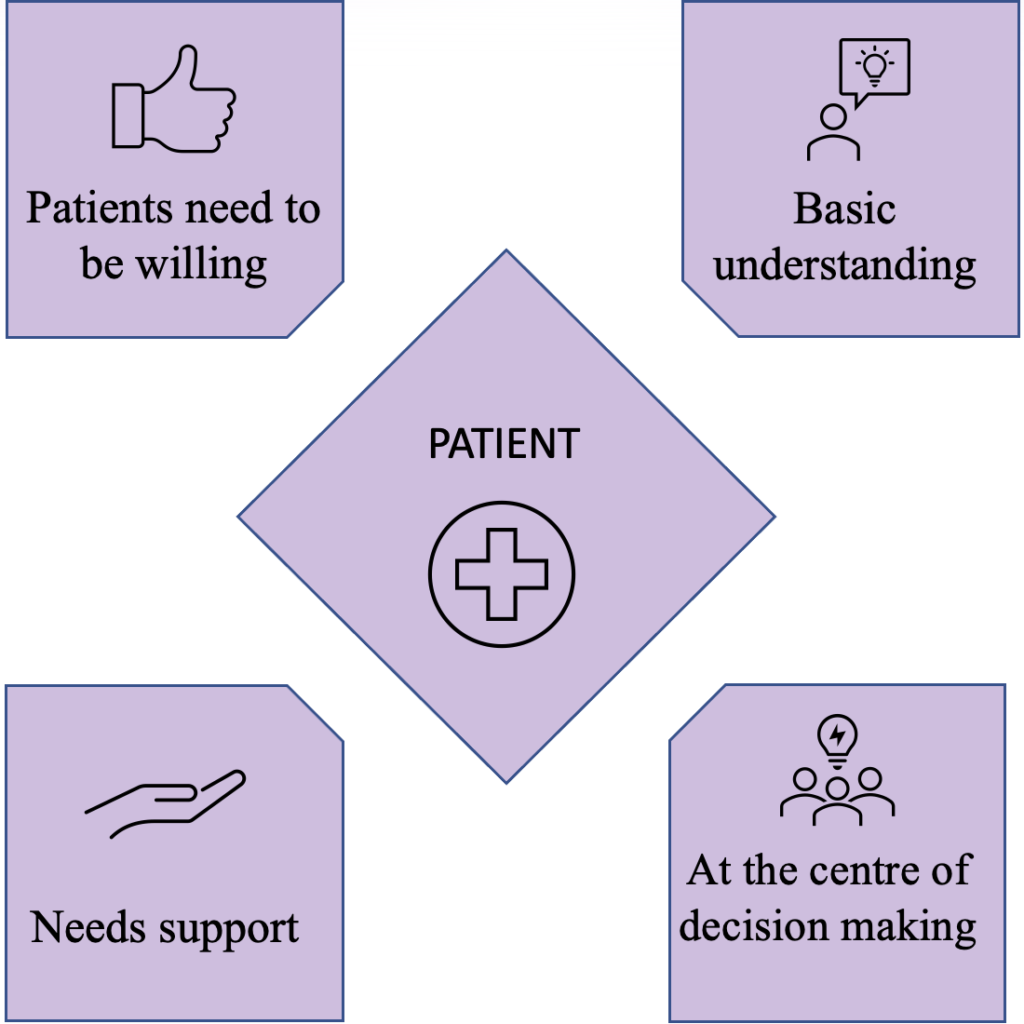
Sometimes it can be as simple as ‘you don’t know what you don’t know’. In all walks of life you cannot embrace what you don’t understand.
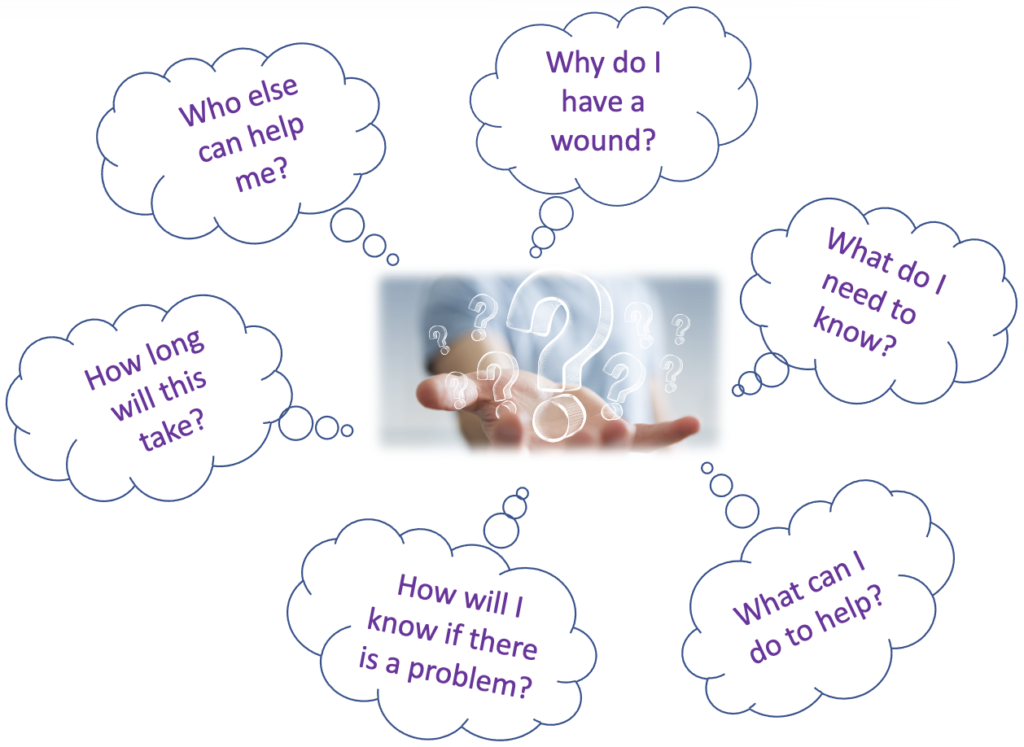
THE FUTURE
Although so much has been done to accelerate self and shared care, more understanding and evidence is needed. Areas of focus include:

- Evidence of supported self care
- Wound healing analysis
- Patient/carer quality of life data
- Evidence based pathways
- Improved material to support patients and carers
- Digital platforms for remote services
- A change in clinical mindset
If you are interested in finding out more about how LLCS can help support the self care revolution, please contact us for more information.
References
- NHS England (2019) The Long Term Plan.
- PA and Gough LL (2014) Self-management: A comprehensive approach to management of chronic conditions. American Journal of public health. 104 (8) e25-e31
- The AHSN Network (2020) The National Wound Care Strategy Programme.
- Hallas-Hoyes L, Williamson S, Kerr A, Andrews T, Calladine L (2021) An advanced self-care delivery model for leg ulcer management: a service evaluation. Journal of Wound Care, Vol 30, No 9.
